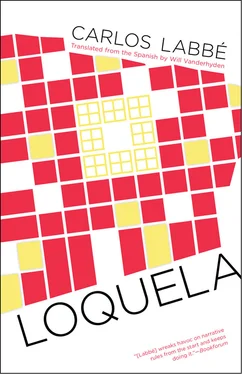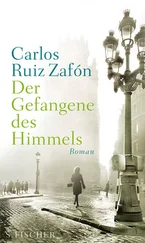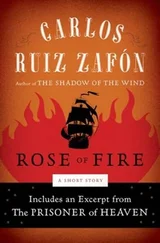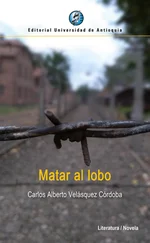To remember something and to write it down is akin to dying, denying that it could’ve happened another way. But I’m going to die anyway and I want at least to save one image, I insist, one token that tells me how I lost you, since in your gesture of greeting, a slight smile, it was already stated that in the end you were going to go: the frozen image has to be broken so you can move, so you can come close to where I am. Though the night is immobile — like the black and white photo of the beach landscape I found in the library of my professor, the only Corporalist I ever got to know — you are not afraid to come.
And you wonder why what began as an extensive and well-plotted letter has become a succession of fragments. Without answering, I say to you: when I no longer exist — or no longer exist in these pages but in that which is never lost or burned, that which can’t even be called word because it lasts, because its meaning never changes, your reading — please, please look at these fragments and understand that what I sought in Neutria wasn’t continuity, but convergence. That from the first to last page I wrote, I knew that it wasn’t I who initiated contact, nor would it be you who would complete it, just like the postman who gives you this envelope will think he’s done his job, ignoring that with the act of delivering my correspondence he has helped bring you closer to Neutria and me closer to Santiago.
I had established a routine through which I was going to render the ekphrasis, an ancient name for the writing of the present: ecstatic descriptions of a situation in which the totality is palpable. My routine, in a few words, consisted of going to write down my observations — in the same place, at the same time (eleven-thirty, ten steps in a straight line past the red kiosk) — of a foreign couple who often sat down to rest, briefly and in silence, before continuing their regular morning walk along the black beach. Of course, many times they — the centerpiece of this, my first picture — did not appear. On those occasions I tried to keep the order intact: I’d begin, moving left to right, in one paragraph, naming every detail my eyes touched, from the sand sticking to my foot to the impassable line of the sea in the background. The idea was to arrive at a description that was undisturbed except at the exact point where the amorous bodies, his and hers, with their tender and gentle — if not weary — movements, interrupted the recursive vision of the ocean waves. Each one of her fingers on his face, traveling slowly down to his neck, completing a movement I might never see again. And three days later, when the couple reappeared, walking, in different clothes and a detail in the expression on their faces acquired from the weight, I mean, the passing of the days, when she asked that they rest for a while and he lay down beside her on the sand, the caress would invariably be distinct, the woman’s skin other, the approach of his fingernails different, foreign the wrinkles, the shine, the dryness, the position of a single hair growing at the base of the ring finger that disappeared within two weeks, blending in with the stain on his hand — was he a painter? — maybe a shadow her nose projected onto those knuckles that were touching her, their edges diffuse on that cloudy day.
I was seeking to prove that the shapes their bodies could take in my picture were infinite, unlike the background of the beach which I deliberately tried to describe in the same number of crystallized sentences every time, such that if there were two or three days that the couple didn’t appear, the paragraphs in my notebook would necessarily be identical: if the sand on the beach was immutable, the waves changed so much that it was always the same wave. And this way I was able to reduce the observation of the sea to a simple formula; the couple, on the other hand, when they came into my picture, never, not even once, allowed me to repeat the expressions of my description. So, through months of work, I was able to establish in my writing what, in your words, is “my makeshift Manichean vision”: across an immortal backdrop, the human couple in constant motion. And I attributed the capacity to fix those two bodies that didn’t want to linger in my picture to a noun: benevolence.
In the last days of summer, the beach was no longer the same as in my descriptions. Maybe writing erodes too, in the end it’s ink on paper, matter on matter, you know this better than I: a body tends to displace any other body that occupies its space, words end up crushing the silence, and that’s why I write you; in the end I’ll make that which has no body triumph over that which does, and that is the story, the ostentatious sentences that prevent me from immediately beginning to tell you about my last weeks in Neutria.
I hate your foul-smelling flesh and love remembering when you supported the full weight of your body on top of mine. But no. The night extends outside, in the ugly Santiago streets that resound louder and louder, telling me: you’ll never say anything to anyone, your words will be cups, but not cups full of water for the thirsty — your time is running out and the night is long — but cups that slip from your hands and begin their fateful fall; this notebook transcribes the precise instant that the cup is suspended in the air before turning to dust on the ground. It won’t be transcendence I attain but silence, because I can’t comprehend the way I scratched out, the slaps you put up with in the name of our love — while I wept, begging your forgiveness on a dark and disappeared Neutrian street, bending down to unbutton your pants, but you took a quick step backwards and I, humiliated, mocked your pseudo-Corporalism — the brevity of that memory that in my notebook takes up no more than three words — blow, tears, insult (and before it had been so lovely, when you brought me home in a taxi, we were coming from the university, we’d had our first kiss in the library, a one-second kiss, just lips, I was scared and I felt a wave of blood in my neck, a powerful heartbeat, but a heartbeat) — stays with me so I live it over and over again, breaking up.
Will a wondrous thing that occurred only once — and all too quickly — make sense again when it’s repeated ad infinitum? You decide, you’ve already received these pages, if I am now in eternity or simply in the lines of a novel, as a person, as a persona, as a model; you decide if I die with you in the moment you stop reading me. Who more than you, the Corporalist, would long for our bodies to stay, touching each other, in these pages. Fleetingly me, because I can’t write you letters from the beyond or the rottenness, I prefer to call it the triumph of silence — not eternity — so that you forget what I’m saying and stay with my body, so that you put what there is to put where it is missing.
In the last days of summer, the beach was no longer the same as in my descriptions. Maybe writing erodes too — you tell me, you’re the one who writes. The couple who had come to occupy the center of my picture stopped appearing, walking right to left across the sand, their movements slowing down before they disappeared altogether, and then my sentences could only repeat the landscape, a wave breaking over a wave breaking over a wave breaking over a wave breaking over a wave breaking. The ekphrasis retreated like the undertow, the picture yielded and there appeared multiple glimmers I’d never seen before, and would never see again: the shape of the wave — breaking in dozens of movements that I could scarcely individuate, much less reduce to the word ocean, because they came and went — disappearing like all the water that falls on you when you go under.
I went home shivering. The experiment had exploded in front of my face, the ekphrasis had revealed itself and I’d been unable to write it. Alicia consoled me when she said my tears confused her, that there was no way to know if my writing had succeeded or failed. Looking me in the eyes, she asked me to let her do a final session, that, in her schoolgirl handwriting, I let her do a final description of the black beach, and then I could keep the results if they seemed useful. I accepted.
Читать дальше












